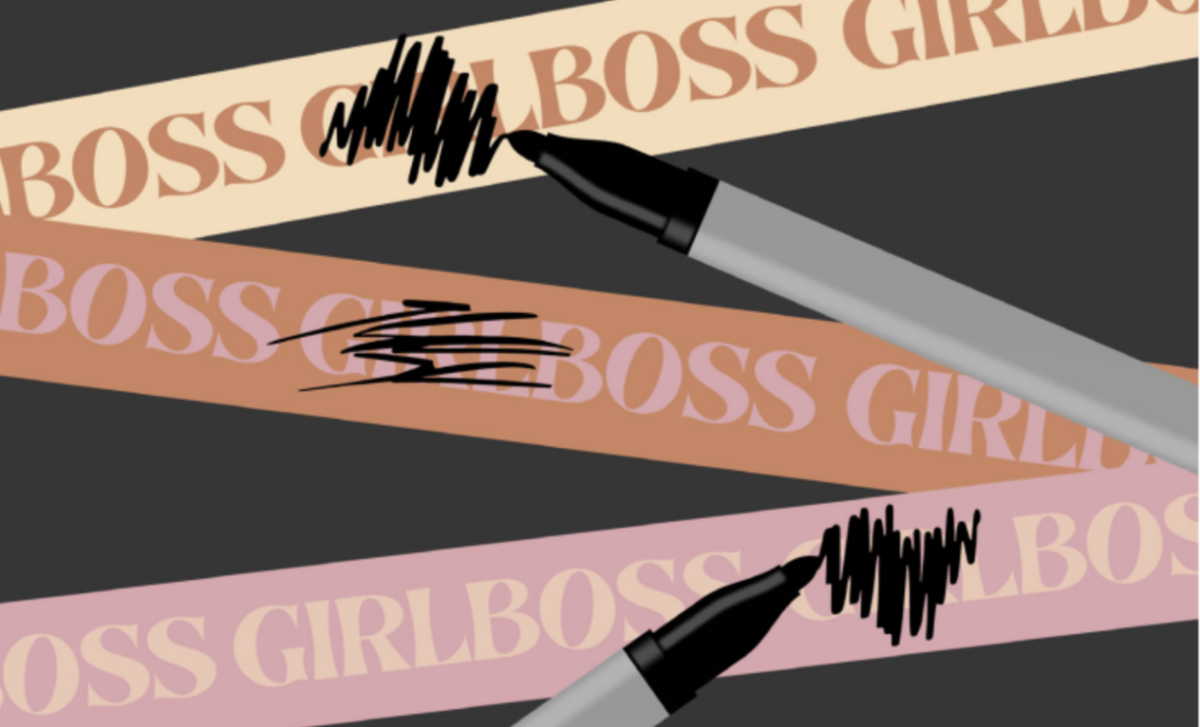Erin Groves ’24 started out using the term “girlboss” as a joke because she thought it seemed like a “funny word.” Now, she’s grown to love using it to break down gender stereotypes.
“[A girlboss] is a woman who doesn’t let the stigma of a man, or really any type of leader, get in her way of following her dreams and pursuing those goals in that position,” Groves said. “They’re someone who’s not afraid of what people may think, and really, their goal is to get their job done and just be independent and do what they can for themselves.”
The term originated in 2014 with entrepreneur Sophia Amoruso’s New York Times bestselling book “#Girlboss.” The book documented her experience founding the American fashion retailer NastyGal. It was followed by a Netflix adaptation, also titled “Girlboss.”
Since then, Generation Z has adopted the term as one of empowerment, used to reference, as defined by the Free Dictionary, “a confident, capable woman who pursues her own ambitions instead of working for others or otherwise settling in life.”
Groves, who is vice president of campus programming for Hawk Hill Productions (HHP), referred to the HHP executive board as “girlbosses” in a recent interview with The Hawk.
“I like to call them girlbosses because each woman in that group supports each other, and I think the big part about being a female leader is supporting other female leaders along the road,” Groves said.
Megan Bradley ’23, an orientation leader, said she’s heard the term used primarily in a positive context and uses it herself sometimes with her friends. However, she said she can see where the term could be
problematic.
“I think the fact that it’s like ‘girl’ boss could be viewed a little bit, not negative, but it might spark some curiosity like, ‘well why is it girl boss, not just boss?’” Bradley said.
The term insinuates that it is not typical for a woman to be a boss, said Elaine Shenk, Ph.D. sociolinguist and professor of Mod- ern and Classical Languages.
“Linguistically speaking, when you put a modifier [or] an adjective in front of another noun, you’re saying that the noun by itself is sort of the norm, and the modified version is outside of the norm,” Shenk said.
There is also concern with the use of the term “girl,” said Chris Heasley Ed.D., assistant professor for the department of Educational Leadership, who co-led the session “Because Words Matter: Race and Gender Terminology” at the university’s Day of Dialogue on Feb. 16. “[Girl] has a context to a sense of ‘be- fore maturity or adolescence’ versus a woman,” Heasley said.
An additional concern for Heasley is that terms that identify gender exacerbate society’s emphasis on binary gender roles like “man” and “woman.” Many people do not identify this way, so continuing to
embed this as the norm is problematic, Heasley said.
“I think that we would do better, in my opinion, to think about uses of words that don’t overtly associate gender with certain roles, stereotypes and orientations,” Heasley said.
Despite the concerns with the inherent meaning of the term, there is a time and place for the usage of words, Heasley said, like when in a group of all women. That is when Groves is most apt to use
the term, like with her fellow HHP leaders. “One of the best parts about being on that board is surrounding myself with other girl bosses,” Groves said. “Being on a board of all women is super empowering to be a woman and you know, just fighting against all odds and doing it together.”














































